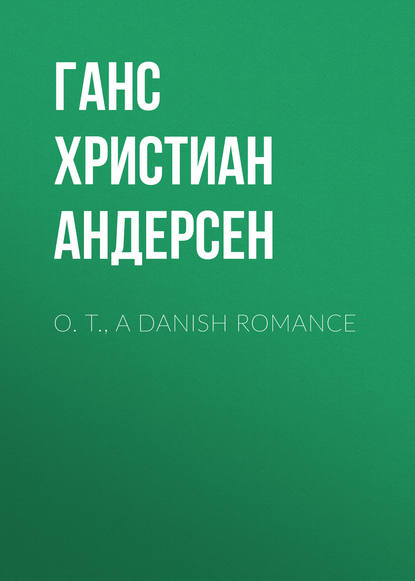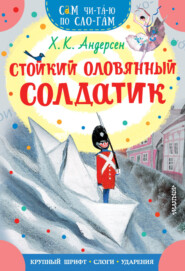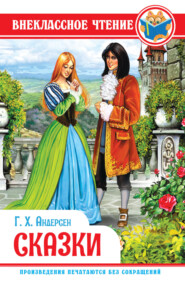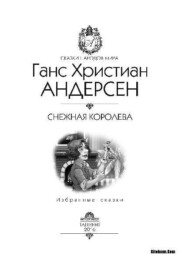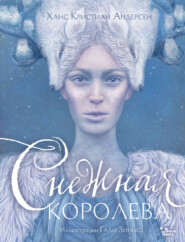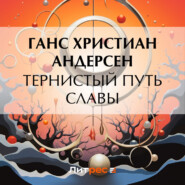По всем вопросам обращайтесь на: info@litportal.ru
(©) 2003-2024.
✖
O. T., A Danish Romance
Настройки чтения
Размер шрифта
Высота строк
Поля
“No, then we shall have to weep in the evening,” replied Wilhelm. And they had neither the song nor the story.
Mamma came wandering with Vasserine, the old, faithful hound: they two also wished to see how beautiful the burning looked. It succeeded excellently with the rape-stalks; but the other burning, of which the story was to be told, it did not yet arrive at an outbreak! It might be expected, however, any hour in the day.
In the evening Otto walked alone through the great chestnut avenue. The moon shone brightly between the tree-branches. When he entered the interior court Wilhelm and Sophie skipped toward him, but softly, very softly. They lifted their hands as if to impress silence.
“Come and see!” said Sophie; “it is a scene which might be painted! it goes on merrily in the servants’ hall; one can see charmingly through the window!”
“Yes, come!” said Wilhelm.
Otto stole softly forward. The lights shone forth.
Within there was laughter and loud talking; one struck upon the table, another sung,—
“And I will away to Prussia land,
Hurrah!
And when I am come to Prussia land,
Hurrah!”[27 - Note: People’s song.]
Otto looked in through the window.
Several men and maids sat within at the long wooden table at the end of this stood Sidsel in a bent attitude, her countenance was of a deep crimson; she spoke a loud oath and laughed—no one imagined that they were observed. All eyes were riveted upon a great fellow who, with his shirt-sleeves rolled up, and a pewter tankard in his hand, was standing there. It was the German Heinrich, who was exhibiting to them his conjuring tricks. Otto turned pale; had the dead arisen from the bier before him it could not have shocked him more.
“Hocus-pocus Larifari!” cried Heinrich within, and gave the tankard to a half-grown fellow, of the age between boy and man.
“If thou hast already a sweetheart,” said he; “then the corn which is within it will be turned to flour; but if thou art still only a young cuckoo, then it will remain only groats.”
“Nay, Anders Peersen!” said all the girls laughing, “now we shall see whether thou art a regular fellow!”
Sophie stole away.
The echoing laughter and clapping of hands announced the result.
“Is it not the same person who was playing conjuring tricks in the park?” inquired Wilhelm.
“Yes, certainly,” replied Otto; “he is to me quite repulsive!” And so saying, he followed Sophie.
Late in the evening, when all had betaken themselves to rest, Wilhelm proposed to Otto that they should make a little tour, as he called it.
“I fancy Meg Merrilies, as my sister calls Sidsel,” said he, “has made a conquest of the conjuror, although he might be her father. They have been walking together down the avenue; they have been whispering a deal together; probably he will to-night sleep in one of the barns. I must go and look after him; he will be lying there and smoking his pipe, and may set our whole place on fire. Shall we go down together? We can take Vasserine and Fingel with us.”
“Let him sleep!” said Otto; “he will not be so mad as to smoke tobacco in the straw! To speak candidly, I do not wish to be seen by him. He was several times at my grandfather’s house. I have spoken with him, and now that I dislike him I do not wish to see him!”
“Then I will go alone!” said Wilhelm.
Otto’s heart beat violently; he stood at the open window and looked out over the dark wood, which was lit up by the moon. Below in the court he heard Wilhelm enticing the dogs out. He heard yet another voice, it was that of the steward, and then all was again silent. Otto thought upon the German Heinrich and upon Sophie, his life’s good and bad angels; and he pictured to himself how it would be if she extended to him her hand—was his bride! and Heinrich called forth before her the recollections which made his blood curdle.
It seemed to him as if something evil impended over him this night. “I feel a forewarning of it!” said he aloud.
Wilhelm came not yet back.
Almost an hour passed thus. Wilhelm entered, both dogs were with him; they were miry to their very sides.
“Did you meet any one?” inquired Otto.
“Yes, there was some one,” said Wilhelm, “but not in the barn. The stupid dogs seemed to lose their nature; it was as if there was a somebody stealing along the wall, and through the reeds in the moat. The hounds followed in there; you can see how they look!—but they came the next moment back again, whined, and hung down their ears and tails. I could not make them go in again. Then the steward was superstitious! But, however, it could only be either the juggler, or one of the servant-men who had stilts. How otherwise any one could go in among the reeds without getting up to their necks, I cannot conceive!”
All was again perfectly still without. The two friends went to the open window, threw their arms over each other’s shoulders, and looked out into the silent night.
CHAPTER XXXVI
“Bring’ häusliche Hülfe
Incubus! incubus.
Tritt herhor und mache den Schluss.”
GOETHE’s Faust.
“Es giebt so bange Zeiten,
Es giebt so trüben Muth!”
—NOVALIS.
The next morning Wilhelm related his evening adventure at the breakfast-table; the sisters laughed at it. The mother, on the contrary, was silent, left the room, and after some time returned.
“There have been thieves here!” said she, “and one might almost imagine that they were persons in the household itself. They have been at the press where the table-linen is kept, and have not been sparing in their levies. The beautiful old silver tankard, which I inherited from my grandmother, is also missing. I would much sooner have given the value of the silver than have lost that piece!”
“Will not the lady let it be tried by the sieve?” asked the old servant: “that is a pretty sure way!”
“That is nothing but superstition,” answered she; “in that way the innocent may so easily be suspected.”
“As the lady pleases!” said the servant, and shook his head.
In the mean time a search through the house was instituted. The boxes of the domestics were examined, but nothing was discovered.
“If you would only let the sieve be tried!” said the old servant.
In the afternoon Otto went into the garden; he fell into discourse with the gardener, and they spoke of the theft which had occurred.
“It vexes every one of us,” said he, “because we think much of the lady, and of the whole family. And some one must, nevertheless, be suspected. We believe that it was Sidsel, for she was a good-for-nothing person! We folks tried among ourselves with the sieve, but however, at the mention of her name, if it did not move out of its place. We had set it upon the point of a knife, and mentioned the name of every person about the place, but it stood as if it were nailed quite fast. But there was really something to see, which not one of us would have believed. I’ll say no more about it, although we had every one of us our own thoughts. I would have taken my oath of it.”
Otto pressed him to mention the person who was suspected.
“Yes, to you perhaps, I may mention it,” replied he; “but you will not say anything about it? As we were standing today, at noon, around the sieve, and it did not move at Sidsel’s name, she became angry, because a word bad been let fall which could not be agreeable to her if she were innocent. She drew herself up as if in a passion, and said to us, ‘But there are also in the hall a many people besides us, who may slip and slide! There are strangers here, and the fine Mamsell, and the farmers. Yes, I suspect no one, but every one ought to be named!’
“And so we did it. Yes, we mentioned even your name, Mr. Thostrup, although we knew very well that you were guiltless of the charge; but we would not excuse any one. The sieve stood quite entirely still until we mentioned Eva’s name, and then it moved. Not one of us actually could believe it, and the servant Peter said also that it was because of the draught from the chimney. We mentioned yet once more all the names, and the sieve stood still until we came to Eva’s, and then we perceived very plainly a movement. The servant Peter at the same moment gave a great blow to the sieve, so that it fell to the ground, and he swore that it was a lie, and that he would answer for Eva. I would have done so too; but yet it was very extraordinary with the sieve! Most of the folks, however, have their own thoughts, but no one venture to express them to the gentry who think so much of her. I cannot, however, rightly reconcile it to myself!”
“She is innocent!” said Otto; and it amazed him that any one should cast the slightest suspicion on Eva. He thought of German Heinrich and Sidsel, who alone appeared to him suspicious. There then occurred to him an experiment of which he had heard from Rosalie. It now seemed to him available, and, physiologically considered, much more certain than that with the sieve.
“Probably it may lead to a discovery,” said he, after he had communicated his whole plan to Sophie and the steward.





